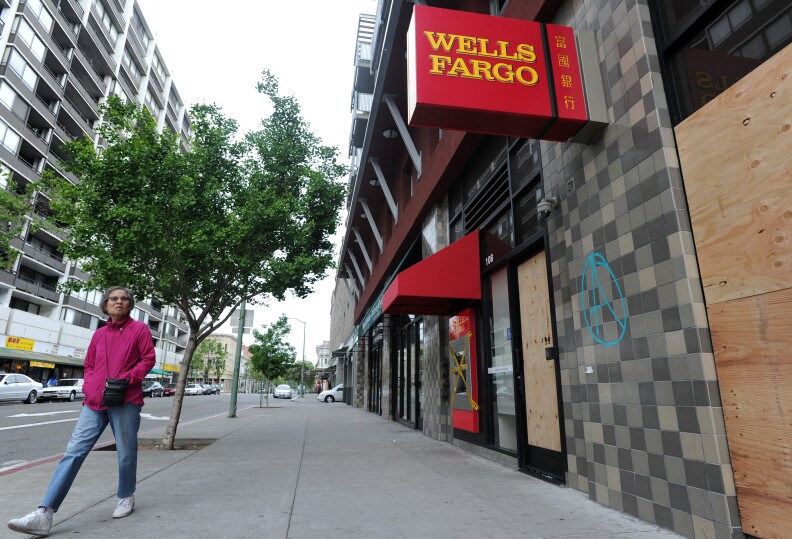Wells Fargo's beleaguered CEO, John Stumpf announced his retirement late yesterday, after revelations that the company pressured employees to create millions of fake bank accounts. It was all part of a scheme to collect extra fees from unwitting customers, and inflate sales numbers.
Eight years ago, Wells Fargo banker Yesenia Guitron spoke up about the questionable practices at her Napa Valley branch. She continued to complain, and eventually lost her job.
Unfortunately, that's what often happens to whistleblowers.
Yesenia Guitron and William Black, a law professor at the University of Missouri, joined Take Two to talk about the pros and cons of whistleblowing.
Interview highlights
On her early experiences at Wells Fargo
Guitron: "I went through about a month of training, and they go at length about the ethics and values of Wells Fargo. When I started working, I did what I have been doing for a long time. And I noticed a lot of customers coming in complaining about fees that they didn't know about, or 'why did they get another debit card', people getting collection calls.
Whistleblowing and retaliation
Guitron: "I suspected [wrongdoing]. When I noticed a clear pattern, I reported to the manager first, to the trainer, and eventually went up the chain of command. I called HR, I called the ethics hotline. And no one seemed to care. Later when the retaliation happened and things intensified, I [didn't] know if I'd done the right thing."
On what drives whistleblowers to finally speak up
Black: "There's literature on this, and it says overwhelmingly people just want to do the right thing. A lot of people experience what Yesenia explained here: 'I was trained in a certain way in an organization, I saw violations, I reported them just like I've been told'. Then people see it persist, and you realize it isn't a problem that they don't know what to do about, it's a problem with the incentive structures."
Guests:
- Yesenia Guitron - Former Wells Fargo Employee, one of the first whistleblowers on the bank's corporate culture.
- William Black - Economic law professor at the University of Missouri, Kansas City. He's the founding member of Banks Whistleblowers United and the author of The Best Way to Rob a Bank is to Own One.



